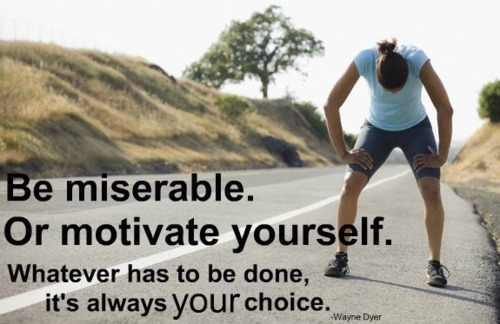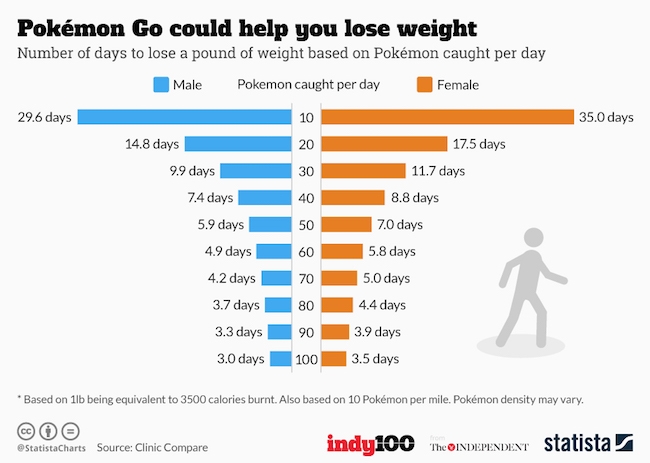There are many reasons that you might have decided to diet right now. You may be preparing for a big event. You may have made a big New Year’s resolution. Or it may be that you’re just ready to lose some to improve your health.
Whatever your reasons, starting a diet can be an exciting and invigorating idea. But after a few weeks, or even days, dieting isn’t quite so appealing. You may be missing some of your old food choices, you may feel hungrier, or you may just feel deprived and angry.
 But there are success strategies that will help you stick to your diet and reach your goals without stalling out. When you understand diet basics and tips for maintaining your progress, you’ll reach your goal in no time.
But there are success strategies that will help you stick to your diet and reach your goals without stalling out. When you understand diet basics and tips for maintaining your progress, you’ll reach your goal in no time.
20 Tips How To Stick To Your Diet
Sticking to your diet actually starts with choosing your diet in the first place. There are thousands of diets you could try and it’s important that you do your homework before you start one.
A diet needs to fit in with your lifestyle and be something that you can do realistically. For example, eating a diet of raw foods may be extremely healthy and help you lose weight. But it’s not for everyone.
If you work 2 jobs it’s probably not the best because of all the time-consuming food prep. If you don’t have time to prepare the appropriate foods, it’s not likely that you’ll stick to this diet for very long.
And there are hundreds more diets that have components that may not work for you while some diets will be perfect for you. So you must choose a diet that will not defeat you in the very beginning.
Here are a few things you should ask about a diet before beginning it
- How much food preparation will be involved?
- Will you have to buy special products?
- Do you need specific tools that you don’t already own?
- Is the food something you already like?
- Does this diet work with your current work schedule and lifestyle?
- Will you have to diet alone, or can your family also practice this way of eating?
- Will you be able to eat out? Or will all food have to come from home?
- How much money will you need spend each month for this diet?
- Will you have to attend meetings for it?
- Will the diet interfere with any health conditions or medications?
- Have you tried this diet before?
You want to choose a diet that fits within your budget and fits within your schedule. If you have a lot of free time, a diet that requires a lot of food preparation may be appropriate.
However, if you’re very busy, you’ll want to find a diet that you can fit into your erratic schedule. If you don’t have time for a lot of food prep or you eat out a lot, you need to make sure your diet is compatible with these requirements.
This is the first step in sticking to your diet. If you choose a diet that fits well into your existing lifestyle, you’ll have a better chance of continuing. If you choose something that is difficult to fit into your lifestyle, you’ll have more of a struggle ahead of you.
1. Be Mindful of Your Budget
 In today’s economy, many people are working to make sure they don’t overspend. Dieting is one of the places where people spend the most money. But it is possible to diet without overspending.
In today’s economy, many people are working to make sure they don’t overspend. Dieting is one of the places where people spend the most money. But it is possible to diet without overspending.
There are two routes you can take to dieting success when it comes to your budget. You can join a program that has costs attached to it or you can do it on your own and use a program from a book or other source.
Diet programs that offer fee-based services have benefits and drawbacks
- Often program fees are high and don’t cover the cost of food
- Even a diet that comes with prepackaged food must be supplemented with more food
- You may get personal one-on-one service
- You may get support group meetings
- You have accountability and regular weigh-ins
- You have someone to coach you when you’re struggling and celebrate your successes
- You must make time in your schedule for any regular appointments or classes
- You may have to pay for meetings or appointments even if you don’t attend them
Alternatively, if you choose the option of going on your own, you’ll find that there are also benefits and drawbacks
- You can use information from books, magazines, or online resources to tailor a plan for you – many of these sources are inexpensive or free
- You won’t have as much accountability
- You won’t have to buy expensive prepackaged food, but you will have to spend more time preparing food
- Support can be encouraged by working with friends, but you won’t have a built-in coach
- You won’t have to schedule regular appointments or meetings
Ultimately, you need to choose a diet you can stick with in the first place. If you’re choosing something that’s way out of your budget, you won’t be able to afford it long-term. It’s important that you make wise financial decisions early on in the process.
2. Understand Your Motivation
When it comes to dieting, it also helps to understand what’s driving your decision to lose weight. Sometimes it’s not enough to be motivated to fit into a new dress. Likewise the general desire to get healthy isn’t always enough to keep you going.
You need to spell out exactly what it is you want to accomplish and why. Here are a few sample items that may motivate you
- Reduce risk for heart disease
- Get off of medication for diabetes
- Live longer for your children
- Have fun shopping for clothes
- Less pain in your joints
- Be able to move more easily
- Enjoy more activities such as gardening and walking
Once you understand what’s motivating you to diet, you can write it down and place reminders around you. This will help you to focus on what you want to achieve whenever you’re tempted to stray from your plan.
You can be very simple about it, or you can get very creative. Some people create vision boards to help remember goals and motivation. You can create this by simply putting magazine cutouts, photos, and even just words on a small poster.
This poster can very simple or more elaborate. Then you’ll place the vision board somewhere that you will come across it every day. Take a few moments each day to look at your vision board and reconnect to your purpose.
Other people create self-affirmations to place in prominent areas. For example, you may want to put small notes on your bathroom mirror, inside your car, and even on your desk at work.
These notes will serve as regular reminders that you have a greater purpose for sticking to your diet. Whenever you’re feeling a little like you want to stop following the plan or you want to give up, you can go to these messages of motivation for inspiration.
3. Get Prepared
When it’s time to begin your diet, it helps to make sure you have all the things you need to be successful. For example, you’ll need to make sure you have the correct food items available.
Some diet plans have staple items that you’ll need over and over again. You may find that it’s best to buy these items in bulk so that you get a better bargain. When you buy in bulk, you’ll also have more on hand.
https://youtu.be/VK39TQwKeP0
You also want to be sure and stock supplies such as storage containers, plastic wrap, and aluminum foil that you’ll need if you’re cooking for yourself a lot. Some diets also require supplements and you’ll need to have a large supply of them.
If you’re using prepackaged food, it’s important to have a good stock on hand so that you don’t have an emergency. When you run out of your pre-packaged food you’ll have to make something different.
It’s a good idea to have at least a week’s worth of extra food so that you won’t run out. There may be times that your regularly scheduled day to pick up your food supply will fall through. Make sure you’re prepared.
There are some diets that require special equipment such as a blender or a microwave. Make sure you have these items before you begin a diet that requires them. Having supplies ahead of time will help you stick to your diet.
If you’re going to make exercise a part of your program, you’ll also want to make sure you’ve go the appropriate clothing and footwear. You don’t want to find that you don’t have comfortable shoes when you’re a few days into the program.
Before you start your diet you need to make a checklist of the things you’ll need. Keep this checklist handy so that you’ll always know what you need to buy – even if you have to make a quick run to the store after work.
Once you’ve got all the supplies you need, you’ll be prepared to stay with your diet for the long term. When you’re not prepared, it makes it that much easier to slip up and miss your routine.
4. Get Support
 When it comes to dieting, it’s often better not to go it alone. It often helps to have someone to whom you can be accountable. It’s also nice to have someone who shares your common goals and vision.
When it comes to dieting, it’s often better not to go it alone. It often helps to have someone to whom you can be accountable. It’s also nice to have someone who shares your common goals and vision.
You may want to consider starting a diet group or even just having a diet buddy. This person will help you to stay on track and you will do the same for him or her.
When you work together, you have several benefits
- You can share success stories
- You can share obstacles and brainstorm ideas to overcome them
- You’ll be able to swap recipes
- You’ll have accountability
- You can motivate one another
- Together you can focus when other areas of your life distract you from taking care of yourself
When it comes to finding the right type of support, there are a few things to keep in mind. First, you’ll want to find someone who is positive about the process and who is committed.
If you work with someone who’s not really committed, you may find that you spend all of your energy trying to stay focused while they distract you. You’ll want to talk before you partner up and find out how committed they are to the process.
You’ll also need to look for someone who has a similar schedule and will be available at about the same time you’re available. This way you know that you’ll be able to meet consistently.
In addition, you probably want to find someone who is following the same diet that you’re following. This way you can truly share stories and you can brainstorm ways to get through stumbling blocks.
Having that support you need can be critical to your success. It’s possible to do it on your own, but it’s so much easier when you have someone to share the burden of this major lifestyle change.
Once you’ve found someone to work with you, make sure that you are also committed to the process. Be his or her cheerleader and follow through will all of your promises when it comes to meeting and working together.
5. Avoid Saboteurs
It’s a well known fact that when you’re trying to lose and improve your health, someone will come along to sabotage your efforts. Whether it’s jealousy, misunderstanding, or just plain being mean this is something you should expect.
There are several ways you can handle a saboteur in your life:
- If possible, avoid them altogether – this is difficult if it’s a close friend or family member
- Steer clear of the subject of dieting and loss – don’t let them in on your diet plan
- Confront the saboteur and let them know you won’t be discussing your diet with them and you would like them to please stop any behaviors that are getting in your way
- Ignore their efforts – don’t engage them when they try to stop your progress
Efforts of other people to get in the way of your success are a sad truth when it comes to dieting. There will always be people who – consciously or unconsciously – will try to keep you from having it all.
Sometimes it’s enough to just recognize that this is happening so you can avoid them or confront them on the issue. While having positive support can lead to your success, allowing negative people to get in your way will be detrimental.
It’s best to nip the problem in the bud. The first time someone does or says something that makes your diet more difficult, make sure to let them know what you want from them.
Change is a hard pill to swallow. Some people – even people who care about you – will have a hard time if your new lifestyle interferes with theirs. Remember that we don’t live in a bubble. Our actions always affect others.
For example, if they’re used to going out to dinner or dessert, it may be difficult when you either turn them down or don’t eat that brownie a la mode anymore. This is especially true if he or she needs to lose as well.
But most people will get over their problems and turn into supporters if you make it clear that you’re committed to your new plan. And eventually as you succeed, they’ll cheer you on.
6. Keep a Journal

Study after study has found that the most successful dieters are those who keep a journal. This journal can work in a number of ways and you can tailor the process to the particular diet you’ve chosen.
For some people, keeping a journal will mean writing down calories and fat grams. For other people it will mean writing down the specific foods and portions you enjoy at each meal.
Still for others, it will mean keeping track of when you ate and how you felt at the time. Some journals are for keeping track of emotions and hunger. But no matter what you do, it helps to keep a journal to record the process.
In addition to keeping track of your diet in your journal, you can also use it to track the amount of exercise you complete. You can also track your and inches in the journal to have all the important information in one place.
Your journal can be something you purchase directly from your diet program. It may also be something that you simply purchase at the office supply store. A spiral notebook often works very well and is an inexpensive choice.
If you need to keep your journal with you on the go, then you’ll want to purchase a very small book that can fit in your pocket, briefcase, glove box, or purse. In that case you may also want something that has a sturdy cover to handle wear and tear.
Journals can be very versatile and fit your personal style. But the main thing you need to remember is that once you’ve bought the perfect book, you need to actually write in it. A journal that you don’t use is worthless.
Here are a few tips for using your journal consistently
- Keep your journal on the kitchen counter where you normally prepare and eat food
- If you eat out or travel a lot, keep a small journal that you can take with you
- Journal your food in the morning when you plan your meals. At night you can back and change anything that you did differently
- Keep a pen or pencil attached to your journal
- Write down what you ate – whether it was on your diet or not
- Look back at your journal to find what weeks you were most successful, then simply repeat them
- Use your journal to make a grocery list
A journal will make a huge impact on how well you stick to your diet. It offers built-in motivation for your journey. You’ll have it to write in when you’re not so happy about dieting and also when you have successes.
7. Set Realistic Goals
 Another stumbling block that many people face when dieting is setting unrealistic goals. This creates a cycle that makes it difficult to stay on your diet. What often happens is that people become discouraged when they don’t reach their goals.
Another stumbling block that many people face when dieting is setting unrealistic goals. This creates a cycle that makes it difficult to stay on your diet. What often happens is that people become discouraged when they don’t reach their goals.
This discouragement eventually leads to giving up on the diet. But instead of giving up, most people would benefit more from actually being more realistic about their expectations.
From the beginning you need to make sure you set goals you can actually achieve. This helps to build success and motivate you to continue further. Slow and steady wins the race.
Here are a few things to consider when setting goals:
- Weight goals should be reasonable – 1-2 pounds per week
- Goals having to do with behavior are also successful. For example, set a goal to drink 8 glasses of water each day for a week.
- You shouldn’t try to change more than one or two behaviors at a time.
- Don’t compete with others when setting goals.
As you go about setting goals, you’ll find that the more small successes you have, the more likely you’ll be to keep going. Many people who try to lose five pounds a week find that they can’t do it and it only makes it harder to keep going.
Your goals need to be very specific and very measurable. To have the goal to “lose ” isn’t enough. You must set smaller goals such as losing 1 pound per week for 52 weeks. This is very specific and each week you can check in to see if you met your goal.
When you make goals that are too large or too vague, you set yourself up for failure. You’ll have a problem before you even begin your work. Don’t set yourself up for failure by being to broad with your goal setting.
8. Chart Your Progress
Keeping a journal and making goals are great first steps for getting your diet in gear. But you also want to make sure you chart your progress as you diet so that you can see both your successes and your failures.
Charts and graphs offer visual representations of your progress. You can make a line graph of your loss in pounds and in inches. You can also make graphs that show your goals and your achievements.
When you see your success visually, it can be a huge motivator to keep going. And when you see the line on your graph start to dip, you can head off further declines by kicking things back into gear.
Many people who have achieved dieting success have found charts and graphs to be critical to that achievement. You’ll likely find that you have the same results when you begin to make graphic representations.
You can make charts by hand. And if you’re comfortable with spreadsheets, you can plug the numbers in and let the computer do all the designing. Then you’ll have it stored and you can manipulate the data to make the kind of graph you want.
9. Reevaluate Your Overall Diet
You’ve been plugging along and your diet started out okay, but now you’re finding that it doesn’t fit your lifestyle or your budget well. Don’t let this be a reason to give up or quit. This is just a time to reevaluate.
Sometimes you need to make changes in order to continue with your success. You may find that one diet may not work very well, but you can try a new program to keep going with your progress.
Every month or so, you’ll want to ask a few questions about your diet
- Am I having success?
- Can I afford this program?
- Do I have enough time to follow this diet?
- Do I enjoy the food I am eating?
- Do I have more energy than I had before?
- Am I happy on this diet?
- Can this diet work for me long-term?
- Is there another diet that would work better for me?
If you’re finding that you don’t have energy, you’re always hungry, and/or you hate what you’re eating, it may be time for a change. Even if you’re losing weight, you don’t want to be miserable all the time.
Likewise, you may be feeling okay with the diet, but not losing any . If this is happening, you may need to find something that’s more appropriate for you. However, if you’re losing 1-2 pounds per week you’re on target.
Sometimes people get discouraged because they want to lose 5 pounds every time they step on the scale. But you need to go back and remember to set realistic goals. A diet that causes more rapid loss may not be healthy.
If you find it’s time for a change, don’t hesitate to do what will make you more successful. Look for another program that works for you. Maybe one that fits your budget, schedule, or food preferences better.
There are hundreds of diets on the market and there’s no reason to stick with something that isn’t working for you. It may take five or six tries to discover what really works for you. The key here is to not give up.
10. Add Exercise to your Lifestyle
 Exercise. The dreaded activity that every doctor and health professional asks you to consider. If you’re looking for a way to boost the effects of your diet, you can’t find anything better than exercise.
Exercise. The dreaded activity that every doctor and health professional asks you to consider. If you’re looking for a way to boost the effects of your diet, you can’t find anything better than exercise.
Yes, this does take work and it isn’t always easy. But if you add even a little exercise to your diet program you’ll find that you exponentially increase your success.
Here are a few tips for adding exercise into your day.
- Start slow – don’t begin exercising and expect to win a marathon
- Add 10 minutes of exercise into your day at first, then work up from there
- Find a workout buddy who will go with you to exercise
- Choose exercises you like
- Change your routine – do different types of exercise regularly
- Incorporate strength training, aerobic activity, and stretching into your routine
- Add exercise into every day activities such as taking the stairs and parking further away from stores entrances
Many people start incorporating exercise and try to go way too fast at first. They may add an hour of activity a day – but after a few days that turns out to be too much. Instead, you’ll want to start out slow.
Just adding 10 minutes a day will allow you to have improvement. And if you do 10 minutes for a week or two, you can add five more at a time. You want to be in this for the long run.
Also, think about the kinds of exercises you like to do. For some people there’s no such thing as good exercise. But you may find that there are activities that will get your body moving without making you miserable.
Here are a few examples of Fun exercise!
- Swimming
- Walking
- Bicycling
- Rollerblading
- Dancing
- Belly dancing
- Yoga
- Badminton
- Golf
- Fishing
- Gardening
- Hiking
- Cross country skiing
- Skiing
- Water skiing
- Flying a kite
- Frisbee
- Racquetball
- Squash
- Team sports
- Circuit training
- Weight lifting
No matter what activity you try, exercise can be fun and make you feel better than just about anything. It helps you to produce natural hormones called endorphins that lift depression and give you huge amounts of energy.
If you’re charting your progress, pay attention to what happens when you add even a tiny amount of exercise. You’ll find that you have much greater success than you were having before.
One thing you need to know, though, is that you might actually see a small increase on the scale when you begin exercising – this is actually a good thing. If you’ve been extremely sedentary you’re going to begin adding muscle mass to your body.
This muscle mass is lean tissue that’s very compact. It will make you look leaner and you’ll see your inches decreasing even if your goes up a pound or two. Eventually, the muscle tissue will help to raise your metabolism.
When that happens, you’ll find that you lose faster, can eat more calories, and have more energy than you’ve had in the past.
The benefits of exercise also extend to your health. Exercise will help you to enjoy
- Lower risk of heart disease
- Lower risk of diabetes (and in some cases a reversal of it)
- Lower risk of cancer
- Lower risk of stroke
- Lower risk of arthritis
- Increased focus
- Increased energy
- Ability to move easily
- Decreased aches and pains
No pill on the market can give you all of these benefits. And while you’ll have to get disciplined and into a new routine, you’ll find that you never made a better decision in your life.
11. Celebrate Success
 When you get a new job, win a competition, or finish an important project, you probably reward yourself. When it comes to dieting, you’ll want to do the same. If you’ve done something well, you’ll want to pat yourself on the back.
When you get a new job, win a competition, or finish an important project, you probably reward yourself. When it comes to dieting, you’ll want to do the same. If you’ve done something well, you’ll want to pat yourself on the back.
If you’re dieting in the first place, you may have once used food as a reward. This is no longer the best way to reward your achievement. Instead, you’ll want to look at non-food rewards to celebrate.
Here are some non food celebrations you can enjoy
- Get a massage
- Enjoy a manicure and pedicure
- Buy a new outfit
- Go on a mini-vacation
- Take a bubble bath
- Go dancing
- Play a round of golf
- Go to a concert or other type of performance
- Have a movie night
- Buy flowers for yourself
These are little treats that you can enjoy that help to make success a little sweeter. You don’t have to spend a lot of money to enjoy something special. Sometimes locking yourself in your bedroom and letting your husband take care of the kids is treat enough.
But when you allow yourself to celebrate successes, you’ll feel renewed. That will help you to stick to your diet and get to your next celebration. You may want to celebrate at a specific milestone.
But you may also want to celebrate successes in changing your behavior. For example, celebrate the first week you drank 8 glasses of water every day. That’s something totally within your control – while the numbers on the scale are not.
12. Don’t Quit When You Go Off Track
From time to time, you’re going to go off of your plan. You may have an extra slice of cake, go carb crazy, or simply throw out all the rules for a vacation. It’s okay when this happens.
The danger is when you beat yourself up, decide that you can’t do it, and then throw out the diet completely. No one is perfect. Accepting that sometimes you’ll make mistakes is a healthy way to stick to your diet in the long run.
Just regroup and keep going. The very next day you can pick up where you left off and pretend that you never went off course. Don’t let a little setback actually throw you completely off of your diet.
Don’t beat yourself up when you make mistakes with your diet. When you get discouraged, you may turn to food for comfort. This will cause you to stay off of your diet longer, gain , and feel even more discouraged.
This cycle is what causes people to gain quickly when they quit a diet program. You don’t have to quit just because you made some mistakes. You just need to get back into the program.
You can also try to determine what caused you to go off track in the first place. This can help you to prevent future problems. Make your mistakes learning experiences and you’ll have even more success.
13. Change Your Relationship with Food
Often people become over because they use food as a way to relax, celebrate, deal with sadness, enjoy happiness, and get through stressful situations. But food is really innocent in all of this. It’s just there to give you the energy you need to get through life.
And while food should taste good and be enjoyable, it shouldn’t be the answer to all of your mental and emotional dilemmas. Instead, you need to find other outlets for dealing with your emotions.
Here are several things you can do instead of finding comfort in food
- Take a hot bath
- Take a nap or just go to bed for the night
- Read
- Keep a diary
- Knit or crochet
- Learn a new hobby
- Call a friend
- Get a massage
- Drink a glass of water
- Have a good cry
- Hit a punching bag
- Take a walk
- Meditate
- Count to 10 – or 100 if necessary
When you learn some new activities to replace your dependence on food, you may find that you lose without even trying. You can still enjoy the food you eat, but you won’t be dependent on it for your every need.
14. Look to the Past
Chances are that this isn’t your first time to go on a diet. You may have tried over and over again only to experience failure. But this time you’re ready to stick to your diet and achieve your goals.
It sometimes helps to look back at what caused you to get off course in the first place. You could have allowed discouragement to allow you to quit. You may have had a major life changing event that took you off the diet.
You may have chosen diets that didn’t work for you financially or fit into your schedule. It’s possible that your diet left you feeling so deprived that you would binge every few days.
Think back on all of your past experiences and determine what it is that caused you to fail. Then try not to repeat those same mistakes. This is one of the easiest ways to stick to your diet.
If you continue to do the things that didn’t work for you in the past, you’ll continue to have the same disappointments. Make this time different. Make this the time that you find a diet that’s realistic for you and achieve success.
15. Get Your Whole Family Involved
 It’s really difficult to stick to a diet plan when you’re the only one in your household doing it. If your family sits down to a big meal every night and you’re the only one eating a “diet” meal, you’ll fee very isolated.
It’s really difficult to stick to a diet plan when you’re the only one in your household doing it. If your family sits down to a big meal every night and you’re the only one eating a “diet” meal, you’ll fee very isolated.
By getting the whole family involved, you’ll find that you achieve more success. You’ll also be helping your whole family to improve their eating habits and their health. If you’ve had trouble with your , they may have the same problem.
While you may not call it a “diet” you’ll find that your family probably needs to improve their eating habits as well. And it’s extremely beneficial for your children to develop healthy eating habits that will follow them into adulthood.
Here are a few tips for getting the whole family involved in healthy eating
- Prepare nutritious meals every night
- Eat together as a family
- Allow your children to help plan menus and cook food
- Serve at least 2 vegetables with every meal
- Only serve 1 starch at any meal
- Make sure you have protein with every meal
- Work with your children to pack healthy lunches instead of eating cafeteria food
- Don’t make your child clean his or her plate – let them stop eating when they’re satisfied
- Have fruit with meals as a substitute for sugary desserts
- Have a family activity night – go to the park, play in the yard, or take a walk together
- Limit video games to 1 hour a day
- Turn off the TV and play games with your family
- Eat breakfast together in the mornings
It would definitely be easier to hit the drive thru every night and then veg out in front of the TV. But when you take the extra time to make your whole family a part of it, you’ll improve everyone’s health.
In addition to the physical health benefit, you’ll also grow closer as a family when you work together to create meals and have fun playing together. Your family will be both healthier and happier.
16. Plan Ahead for Eating Out
 One of the biggest difficulties people have with dieting is figuring out what to do when eating out. Some people quit their diet altogether because they can’t stick to it with their busy schedule.
One of the biggest difficulties people have with dieting is figuring out what to do when eating out. Some people quit their diet altogether because they can’t stick to it with their busy schedule.
But you can eat out and stick to your diet – if you choose the right diet in the first place. It just take a little planning ahead to make sure you get the food you need to stay on your plan.
Here are a few tips for eating out at a sit-down restaurant
- Call ahead and have a menu faxed to you
- Decide what you’ll eat before you get to the restaurant
- Look on the menu for healthier selections – many restaurants have special diet menus
- Choose grilled food over fried food
- Ask for steamed vegetables
- Skip the bread basket
- Resist the urge to eat everything on your plate – stop when you’re satisfied
- Split a meal with someone else
- Opt for water to drink with your meal
- If you have dessert, choose a small serving if on the menu or split it
- Choose whole grain pasta and bread if available
People are more health-conscious when it comes to eating out these days. Most major restaurant chains have developed menus for lighter fare. You can use these to help you make choices without having to think too much.
If you’re on the go and you spend a lot of time eating fast food, you’ll need to be prepared to choose healthy options.
Here are some tips for fast food restaurants when you’re on a diet
- Get grilled food instead of fried food
- Drink diet sodas or water with your meal
- Ask for a side salad or fruit instead of fries
- Ask for food to be prepared without dressings, you can add your own instead
- Choose smaller portions – don’t super size
- Try getting a kids meal
When you plan ahead for fast food, you can eat on the go and still stick to your diet. Most fast food restaurants now have choices for people who are trying to watch their or health.
Another situation you may encounter is attending a party. Many people fear that they won’t be able to attend parties that are focused on food.
There are ways to survive when you attend a party.
- Offer to bring a dish that is on your diet
- Eat before you go to the party so that you’re not starving when you get there
- Look for items such as fresh veggies and fruits
- Eat small portions of higher calorie foods
- Drink water instead of sodas or mixed drinks
- Skip the cake – or have half a slice
- Don’t fast all day and then binge at the party – eat your regular meals so that you don’t overindulge
- Focus on friendships and socializing rather than food
Parties don’t have to be miserable experiences where you feel deprived and unable to participate. And you don’t have to skip them altogether. Just plan ahead so that you can make healthy choices.
17. Dealing with the Office
Work lunches and break rooms can also be places where you can struggle with your diet. It helps to pack your lunch every day. Not only will you save money, but you won’t be tempted to eat high calorie foods that aren’t on your plan.
When it comes to the break room, you can’t blame others for your problems with food. Instead of complaining about the lunch goodies that are brought, bring healthy alternatives.
You can also keep plenty of health snacks at your desk to get through times of hunger. This will help you to resist the cakes, cookies, and breads that often are brought to the workplace.
18. Be Flexible

When you’re on a diet, sometimes things won’t go your way. You may plan ahead but find that a restaurant or party simply doesn’t have what you need to stick to your plan. You may go to a friend’s for dinner and not find any healthy selections on the menu.
If you’re too rigid about your diet, you’ll isolate yourself and alienate your friends. There will be times that you have to just go with the flow and be a little bit more flexible. If you do, you’ll find that your diet will be more successful.
When you find yourself in a situation where you can’t find diet-friendly foods, just use your common sense. Eat smaller portions, make the best choices you can, and get back on track when you return to a situation you can control.
When you’re too rigid, it causes you to become discouraged. And when life throws something unexpected at you, you get completely off track. By staying flexible, you’ll always be able to deal with changes.
19. Look At Your Diet as a Lifestyle Change
If you look at going on a diet as a temporary situation, you may have harder time sticking to it. Instead, you need to look at your diet as a lifestyle change. Instead of “going on a diet” you’re changing your diet.
When you think of a diet as something that has an end, you set yourself up for gain and discouragement. You’ll have to maintain a healthy lifestyle in order to enjoy the success you’ve achieved.
Sometimes just making this simple change in the way you view your situation will help you to have more short-term success. It can also help you to have long-term success and the results you really want.
20. You Can Stick to Your Diet
Whether this is the first time you’ve ever tried a diet or the 100th time, this can be your last time. When you plan ahead and set realistic goals, you’ll find that sticking to your diet and maintaining a lifestyle change will be possible.
It starts by selecting a way of eating that will work to fit your lifestyle. What works for one person may not be appropriate for another. Don’t compare yourself to anyone else – you only need to focus on your needs and your successes.
Instead of yo-yoing up and down, it’s time to stick to a program that will give you what you really want. Now you know how to stick to your diet and improve your health. The tortoise had it right – slow and steady wins the race. If you’re in this for the long haul, you’ll achieve all you imagined.



